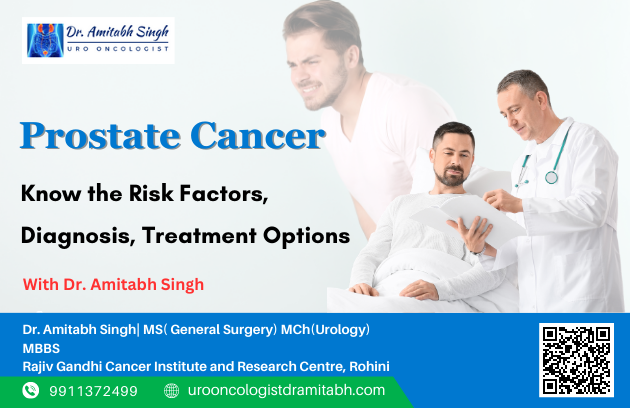- August 28, 2023
- By: oncologistdramitabh
What is Prostate Cancer?
Prostate cancer happens when strange cells start to grow in the prostate gland, which is a tiny organ shaped like a walnut. This gland usually makes fluid for semen. These unusual cells can grow too much and make a lump, which might hurt nearby parts of the body or spread to other places.
Family History: Having a close relative with prostate cancer increases the risk.
Ethnicity: African-American men have a higher risk than other ethnic groups.
Diet: A diet high in red meat and low in fruits and vegetables might increase risk.
Digital Rectal Exam (DRE): In this exam, a doctor examines the size and shape of the prostate by gently checking through the rectum.
Understanding the Results
If the PSA test or DRE suggests a problem, more tests like biopsies and imaging may be done. A biopsy involves taking a small sample of prostate tissue for analysis to confirm the presence of cancer.
Treatment Options
Treatment options include
Conclusion
Prostate cancer is a serious condition that requires attention, but advancements in medical science have improved our ability to detect and treat it effectively with Best Prostate Cancer Oncologist in Delhi NCR. Regular check-ups, a healthy lifestyle, and understanding your risk factors can contribute to early detection and better outcomes. If you or someone you know is at risk, don’t hesitate to consult a healthcare professional.


